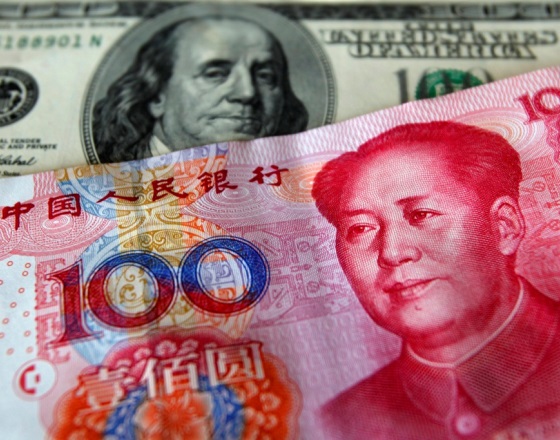
The international of the Chinese yuan continues unabated. While it is unclear whether or not the new Asian Infrastructure Investment Bank will issue loans purely in the Chinese currency (it’s other investment bank project with the BRICS is dollar based), one thing is certain: investment banks like HSBC are preparing for the day when more of their clients want to settle trade in yuan.
The biggest stumbling block to the yuan becoming a truly global currency is Beijing and the U.S. Congress. Beijing isn’t exactly ready to let the yuan become a full blown free floating currency. China is still taking baby steps into capitalism.
Then there is Washington. The U.S. Congress, led by Republicans, is not fond of including the yuan in the International Monetary Fund’s Special Drawing Rights. Those SDRs are a basket of currencies made of exclusively of dollars, euros and yens. China wants to be included. It’s economy is second only to the U.S. China is surely more important to global trade than Australia and Canada, which are included in the basket.
If China’s currency does become part of the basket, it becomes an easier sell for the world’s biggest currency holders: emerging market central banks. They will be quick buyers of yuan, some more than others. Like Russia, for instance. Given its battle with the West over Ukraine, if Russia’s Central Bank could buy more yuan denominated debt, or simply hold the currency in its reserves instead of Treasury bonds, it would.
The IMF will decide on China’s internationalization in December. It is a date to watch. It will be a hint as to how China-U.S. relations will be for the next five years. The IMF makes such decisions only twice a decade. The time for China is now.
If the IMF decides to add the yuan into the basket, the path to internationalization will be well paved. The dollar will have a true rival.
To push for the IMF’s endorsement of the yuan as a global reserve currency alongside a strong U.S. dollar will be a challenging task given the current slowdown of the Chinese economy.
CEIC Data shows there is a close relationship between Chinese money supply and China’s foreign exchange, whereby the amount of U.S. dollars is very high in the money supply. Foreign reserves account for 67.6% of M1 money supply. If 65% of foreign reserves are in dollars, then CEIC says that M1 contains up to 44% of US dollars. M1 is cash and liquid assets.
With the ongoing dollar appreciation, the yuan must first maintain its stable value and appreciate at a gradual pace along side the greenback. Otherwise, the progress of internationalization will be hindered, CEIC’s China analyst wrote in a report this week. However, as this currency goes global, future development of it as a true reserve currency like the dollar depends more on politics. Economic factors may have a smaller role to play.
original source: http://www.forbes.com/sites/kenrapoza/2015/04/23/chinas-yuan-keep-getting-bigger-but-dollar-not-giving-up-the-throne/
